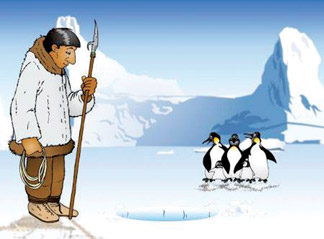Be fluent in ‘others’
 It is always a treat to be back in ‘Metalanguage’ mood. The eventful
weeks passed by almost paralysed my flow of writing. Thankfully I am
back on track. Although busy days captured my writing, I never failed to
read news from my motherland. It broke my heart to see how people fight
over religious establishments. Everyone has a special place in his/her
mind for religion but it should not consider other’s belief inferior. It is always a treat to be back in ‘Metalanguage’ mood. The eventful
weeks passed by almost paralysed my flow of writing. Thankfully I am
back on track. Although busy days captured my writing, I never failed to
read news from my motherland. It broke my heart to see how people fight
over religious establishments. Everyone has a special place in his/her
mind for religion but it should not consider other’s belief inferior.
Fighting against one’s beliefs is more a tribal practice other than a
civilized activity. Then automatically this turns out to be a matter of
education. It is not rocket science but it is a moment you understand
that what all you think is determined by the capacity of your knowledge.
According to Benjamin Whorf ‘s Linguistic Relativity Hypothesis a
person’s language determines and limits what the person experiences.
Not all concepts can be expressed in some languages. This language
barrier can affect one’s perception of colour. For example, the Shona
language in Zimbabwe and the Boas language in Liberia have no words
which distinguish red from orange. Therefore, people fail to perceive
different colours because of language limitations.
 When colour terminology in different cultures is compared, certain
patterns are observed consistently. All languages have designations for
black and white. Hmm it’s obvious that, humans are generally short
sighted as they never look for the shades of grey. Even the climate in
which we live influences our colour preferences, those who live in
climates with a lot of sunlight prefer warm bright colours; while those
from climates with less sunlight prefer cooler, less saturated colours.
But the environment and the climate also dictate the way colours are
classified, according to the relevance they have in the everyday life.
For example, Eskimos use 17 words for white as applied to different snow
conditions. When colour terminology in different cultures is compared, certain
patterns are observed consistently. All languages have designations for
black and white. Hmm it’s obvious that, humans are generally short
sighted as they never look for the shades of grey. Even the climate in
which we live influences our colour preferences, those who live in
climates with a lot of sunlight prefer warm bright colours; while those
from climates with less sunlight prefer cooler, less saturated colours.
But the environment and the climate also dictate the way colours are
classified, according to the relevance they have in the everyday life.
For example, Eskimos use 17 words for white as applied to different snow
conditions.
The Neuer people of Sudan, who have more than 400 words to describe
cattle. Each word indicates differences in colour, size, body shape and
the shape of the horns.
Just because we do not have a word with the same meaning, does not
imply that we cannot comprehend what the word is - and it can be
counter-argued against Sapir-Whorf that simply by being able to
comprehend the word, we can indeed see the world through that speaker's
eyes.
The Sapir-Whorf Hypothesis states that language is not merely a way
to express ideas, but that it affects the range of ideas that we can
have. For example, if there is no word or term for a particular concept
in one's language(s), then it typically is hard for one even to conceive
of the concept in the first place, let alone communicate that concept to
another person.
Words do not merely match pre-existing things in the world. Rather,
they shape and encapsulate ideas about things--how they are categorized
(compare dog vs. canine), how we are interacting with them (compare
sheep vs. mutton), how the word functions grammatically (compare the
noun cow vs. the adjective bovine), and how we wish to represent our
attitudes about them (compare critter vs. varmint).
Thus the puzzle we are faced with is neither a psychological nor an
aesthetic one: it is a cultural one, and as such it is filtered through
a linguistic system. We are dealing with verbal language in so far as it
conveys notions about visual experiences, and we must, then, understand
how verbal language makes the non-verbal experience recognizable,
speakable and effable.
Few linguists today would accept the pure form of the Sapir-Whorf
hypothesis, but most use it as the ground theory of their research. For
me it is a vital lesson for broadening my horizons.
|



